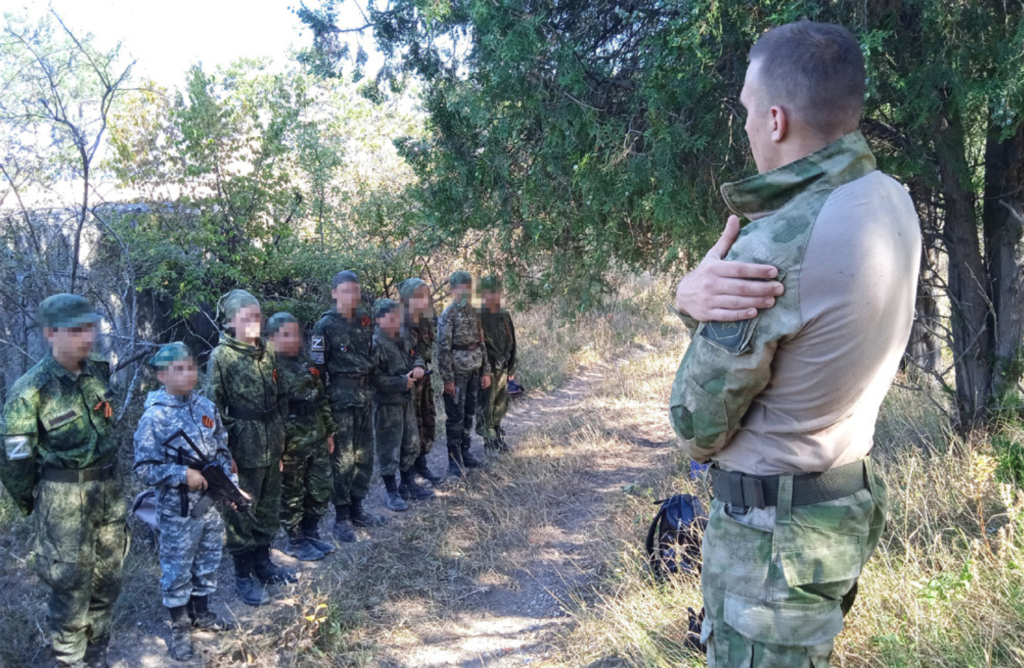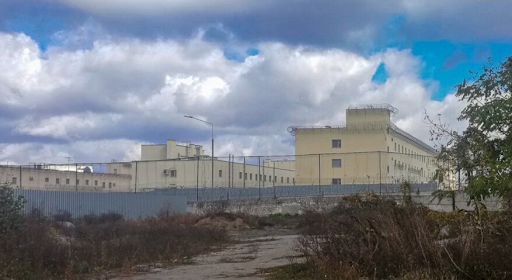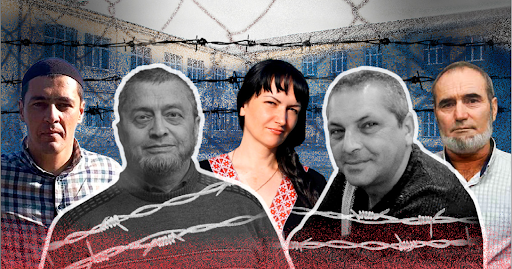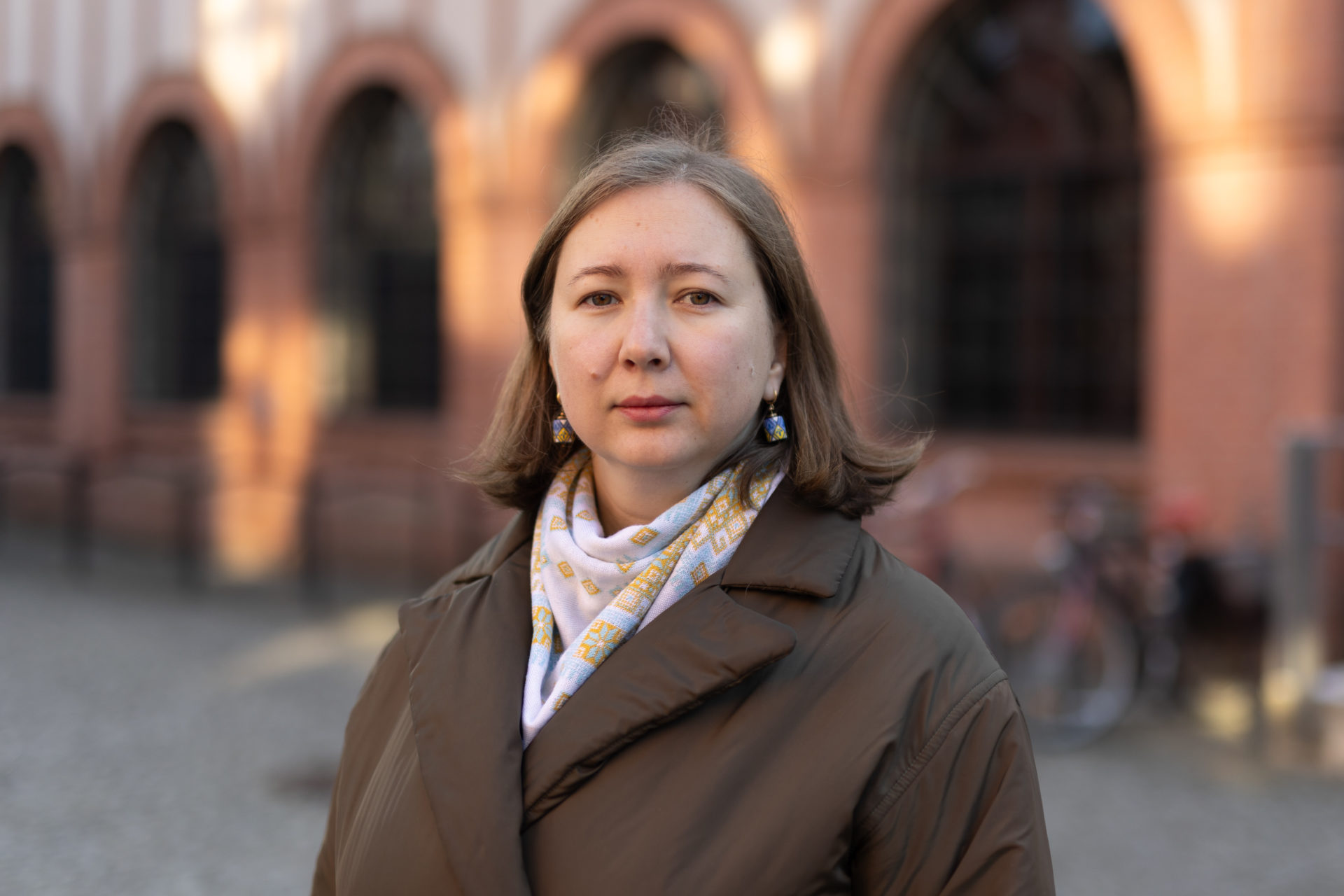This interview was originally published in Ukrainian by Human Rights House Crimea.
This year, we are witnessing specific negative trends and certain essential points that should be incorporated into this year’s Resolution.
“For us, human rights defenders working with Crimea, this is perhaps the most practical mechanism. Its primary outcomes should be the Secretary-General’s report on Crimea presented at the UN General Assembly, increasing or, at the very least, maintaining the level of support from countries through voting.”
Crimean children have become a resource for Russian military mobilisation

One of the critical issues highlighted this year is the militarisation of Crimea and its impact on human rights.
“This year’s proposals address changes and the worsening situation after a full-scale invasion. Specifically, they pertain to the militarization of the region, which extends beyond the establishment of a military base.”
“Crimea has transformed into a source of mobilisation resources, utilising Crimean residents as human resources for military purposes. This leads to numerous human rights violations. We stress that the militarisation of children, in particular, involves turning teenagers, aged 16-17, into a reserve force to potentially replenish the frontlines in the event of further war conflict.”
Political persecutions and new pre-trial detention centres for kidnapped Ukrainians established in Crimea

Skrypnyk highlights political persecution and the creation of new pre-trial detention centres in Crimea as other critical concerns.
“We recommend addressing the situation of political persecution in Crimea, which remains under Russian occupation and continues to evolve into a ‘prison’. We are aware of the establishment of pre-trial detention centres No. 2 and No. 8 specifically for individuals abducted from the southern regions of Ukraine, including Zaporizhzhia and Kherson.”
Hundreds of citizens from the newly occupied territories have been detained. We believe that this should be a focal point in the new Resolution set for adoption this year.
“This year, we also emphasise the tragic consequences of the lack of an appropriate response to the ongoing crimes of Russia – namely, the failure to provide medical care to political prisoners. Already this year, it led to the deaths of Dzhemil Hafarov and Kostiantyn Shyring, who have already died due to the deliberate failure to provide them with medical assistance.”
“This practice is spreading even now – as dozens of political prisoners are under threat of death. We believe that the deliberate non-provision of medical aid, which has already led to deaths, should be highlighted separately in the Resolution demanding that Russia provide access to places of detention for our citizens and generally stop this practice and release political prisoners. First of all, this applies to those who need urgent medical assistance.”

Skrypnyk’s organisation, Crimean Human Rights Group, reports that there are currently at least 180 Crimean political prisoners: “We possess detailed information about their cases and the names of the so-called judges. Furthermore, we have verified at least 70 politically motivated cases against Ukrainians who were deported from the occupied southern territories of Ukraine, many of whom are currently in the Simferopol detention facility or have already been deported from there to the Russian Federation.”
Advocacy at the international level is key
The thematic resolution addressing Crimea was first voted and adopted in 2016. Among others, according to Skrypnyk, this is thanks to the advocacy efforts of human rights organisations in collaboration with the Human Rights House Foundation (HRHF). The text of last year’s resolution, to which human rights defenders also submitted proposals, can be found here.
“Our advocacy at the UN and Council of Europe levels is happening thanks to our partnership with Human Rights House Foundation. While our recommendations for the Resolution could remain mere text, at best supported by the Ukrainian government, it is crucial for us, as human rights defenders, to advance our cause independently through human rights organisations.”
“Thus, the advocacy aspect of these proposals holds paramount importance. Today, Ukrainian human rights defenders play a key role in advocating for improvements in the international justice system through prosecution. Our collaboration with HRHF in international advocacy remains pivotal.”
We’re advocating in the UN Headquarters, NYC & various delegations with an amazing group of women HRDs bringing under public limelight the crackdown on human rights in #Crimea with @RchrSev @zminaUkraine @CCE_Almenda @HRH_Crimea @UGSPL crimean human rights group @HRHFoundation pic.twitter.com/63kZXaiYcy
— Maria Kurinna (@KurinnaMarie) June 5, 2023
“Supporting human rights defenders is a distinct area of the HRHF’s work. It encompasses not only drawing attention to the release of human rights defenders currently held for political reasons, such as Iryna Danylovich and Emir Usein Kuku but also nurturing the work and professional development of Ukrainian human rights defenders who continue their efforts in wartime conditions.”
“This strengthens our voice and allows us to influence specific decisions, including political ones concerning Ukraine and the international system’s construction. The result of this support can also be seen with ‘Crimean’ Resolutions that are adopted annually.”
“In addition to preparing recommendations for the Resolutions themselves, thanks to the cooperation with HRHF, we participate in international events in support of these Revolutions, and meetings with the UN Missions of various countries located in New York, USA.”
“Such meetings are very important, because we meet both with our partners, those who support us [Ukraine], and with neutral countries [that abstained from voting for the relevant Resolution], and we need to hear their arguments. Because we can often be in our own ‘bubble’, and having external professional feedback and being able to hear comments from countries that do not support us have significantly enhanced our work, as we could strengthen our argumentation.”
Our @ACEurasia team was proud to meet with a delegation of human rights defenders from Crimea at @AtlanticCouncil.
An important discussion on Russia’s ongoing crackdown on human rights & international crimes in occupied Crimea. #StandWithUkraine pic.twitter.com/1BwPm8MZsT
— Eurasia Center (@ACEurasia) June 6, 2023
In May – June this year, Skrypnyk, along with experts from ZMINA Human Rights Centre, Regional Centre for Human Rights, “Almenda” Centre for Civic Education, and HRH Crimea, conducted an advocacy trip to New York and Washington, DC. During this trip, they met with representatives of international organisations, UN member states’ delegations, the European Union’s UN representation, and members of the U.S. Congress to present new data and discuss the human rights situation in Crimea.
This was the first of two trips planned this year with the aim of supporting the proposals of human rights defenders to the Resolution, attracting partners to participate in the Crimean Platform Expert Network, and maintaining attention to the situation in Crimea with emphasis on the problem of forced relocation of Ukrainian children, indoctrination and militarisation of children in Crimea, the situation with political persecutions, and other issues. The second advocacy trip is being held now in New York. Organisational support for both trips was provided by the Ukrainian Helsinki Human Rights Union and the Human Rights House Foundation.
A delegation of 🇺🇦 HRDs @zminaUkraine, @HRH_Crimea, @CCE_Almenda & @RchrSev have dozens of meetings in #NYC and #Washington 🇺🇸
They remind the story of Iryna Danylovych to the international community #FreeDanylovych ❗️ pic.twitter.com/7Y7Nj8c16A
— ZMINA. Human Rights Centre (@zminaUkraine) June 7, 2023
“All these meetings invariably revolve around the issue of political prisoners and civilian hostages, who number in the thousands without any mechanisms for their release.”
“In the context of the release of political prisoners, this dialogue, both with partner countries and those that do not actively support us becomes crucial. Any country has the potential to become an interlocutor regarding the release of specific people.”
“For example, there was a case when Turkey facilitated the release of two political prisoners – representatives of the Mejlis [representative body of Crimean Tatars], Akhtem Chiygoz and Ilmi Umerov. We do not know what methods might work or when, but certain countries that maintain cooperation with Russia can potentially negotiate the release of particular individuals. Because, of course, it is more difficult for us [Ukraine] to conduct such negotiations.”
“Political persecution topics, such as torture or abuse of women – are universal issues that we can often advocate for, even with countries that may not align with Ukraine politically. We don’t know for sure what exactly can work, because there are no legal mechanisms, if they were in place – we would have already released these people because they are imprisoned illegally.”
All four Human Rights House Crimea member organisations worked on the proposals for the UN resolution this year: Crimean Human Rights Group, Human Rights Centre ZMINA, Regional Center for Human Rights, and Center for Civic Education “Almenda”.





